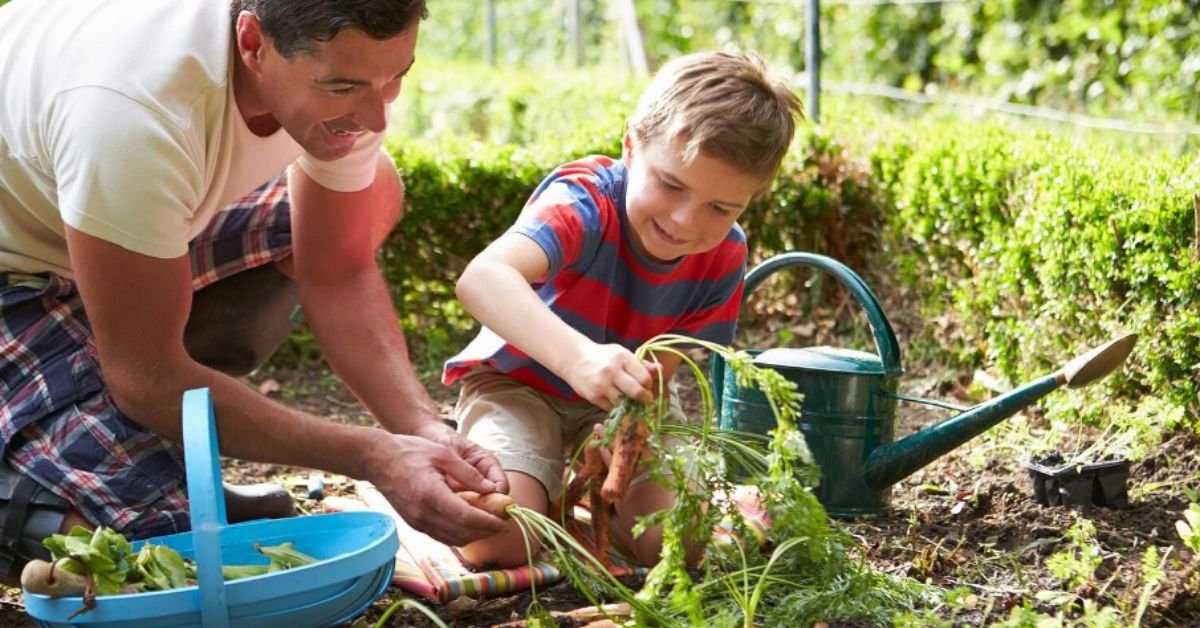Introduction
Gardening is often seen as a hobby, but it’s much more than that. From enhancing physical health to improving mental well-being, gardening provides many benefits, making it an ideal activity for people of all ages. Whether planting vegetables, growing flowers, or maintaining a lush green lawn, tending to your garden can transform your body, mind, and perspective on life.
In this article, we’ll explore how gardening contributes to overall health and why it’s one of the most rewarding activities you can pursue.
Physical Benefits of Gardening
A Natural Workout
Gardening is a full-body workout disguised as a leisure activity. Tasks like digging, planting, weeding, and raking engage various muscle groups, improving strength, endurance, and flexibility.
- Cardiovascular Health: Mowing or raking increases heart rate, enhancing cardiovascular fitness.
- Calorie Burning: On average, you can burn 200-400 calories per hour while gardening.
Enhances Mobility and Flexibility
Regular gardening helps improve joint health, coordination, and flexibility, making it particularly beneficial for seniors or individuals recovering from injuries.
Boosts Immunity
Exposure to soil introduces your body to beneficial microbes, which can strengthen your immune system. Additionally, outdoors increases vitamin D levels, which are vital for bone health and immune function.
Mental and Emotional Benefits of Gardening
Reduces Stress and Anxiety
Gardening has a calming effect on the mind. The repetitive motions, connection to nature, and sense of accomplishment reduce cortisol levels (the stress hormone).
- Mindfulness: Gardening encourages you to focus on the present moment, promoting a meditative state.
- Stress Relief: Studies have shown that 30 minutes of gardening can significantly lower stress levels.
Improves Mood and Mental Clarity
Interacting with plants releases endorphins, improving mood and reducing symptoms of depression. The vibrant colours and fragrant smells of flowers and herbs also have therapeutic effects.
Fosters a Sense of Achievement
Nurturing a plant and watching it grow instils a sense of purpose and achievement, boosting self-esteem and confidence.
Social and Community Benefits of Gardening
Builds Connections
Gardening often brings people together. Community gardens, gardening clubs, and workshops foster social interaction and a sense of belonging.
Promotes Generosity
Sharing homegrown produce or flowers can strengthen relationships and create a sense of community spirit.
Gardening as a Sustainable Lifestyle
Reduces Carbon Footprint
By growing your food, you contribute to a sustainable environment. Home gardens reduce the need for transportation and packaging associated with store-bought produce.
Encourages Organic Practices
Gardening allows you to avoid harmful pesticides and chemicals, promoting healthier eating and a cleaner environment.
Conserves Resources
Using techniques like composting and water-saving methods such as drip irrigation conserves natural resources while enhancing soil fertility.
How to Get Started with Gardening
Choose the Right Plants
Begin with easy-to-grow plants like tomatoes, basil, or marigolds if you’re a beginner.
Invest in Essential Tools
A good spade, gloves, pruners, and a watering can are essential tools every gardener needs.
Learn and Experiment
Join gardening groups, read books, or watch online tutorials to expand your knowledge and experiment with different techniques.
FAQs
What are the best plants for beginners?
Easy-to-grow plants include herbs like basil, vegetables like lettuce, and flowers like marigolds.
How does gardening improve mental health?
Gardening reduces stress, promotes mindfulness, and releases mood-enhancing endorphins, improving overall mental well-being.
Can gardening help with weight loss?
Yes, gardening is a moderate-intensity exercise that burns calories and improves physical fitness.
How can I start a sustainable garden?
Start by using compost, conserving water, and avoiding chemical fertilizers or pesticides to create an eco-friendly garden.
Do I need ample space to garden?
Not at all. Small spaces like balconies or window sills can be used for container gardening, allowing anyone to grow plants.
How often should I garden?
Spending as little as 30 minutes a few times a week is enough to experience the physical and mental benefits of gardening.
Conclusion
Gardening is a robust activity that nurtures the earth and your body and mind. Its benefits are unparalleled, from boosting physical fitness to reducing stress and fostering social connections. Whether tending to a small herb garden or cultivating a backyard oasis, every moment spent with your hands in the soil is a step toward a healthier, happier, and more sustainable lifestyle.
So why wait? Pick up a spade, dig into the soil, and let gardening transform your life, one plant at a time.
Latest Post!
- The Ultimate Guide to Luxurious and Eco-Friendly Bath Products: Featuring Cunke

- Bailey Self Storage: The Secure and Convenient Storage Solution You Need

- PR Construction, LLC: Building Dream Homes with Exceptional Craftsmanship
- A Detailed Look at Lang’s Painting: Unveiling the Artistry Behind the Masterpieces

- Moving Made Easy with AMPOL Moving, Inc.: Your Trusted Illinois Partner

- WepBound: A Groundbreaking Platform Revolutionizing Digital Connectivity


